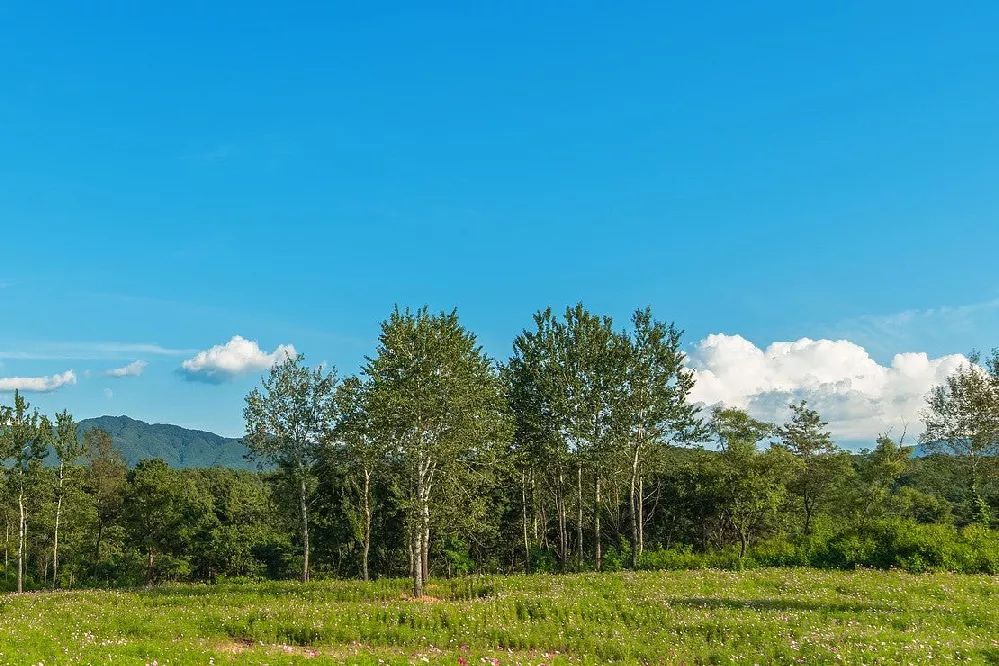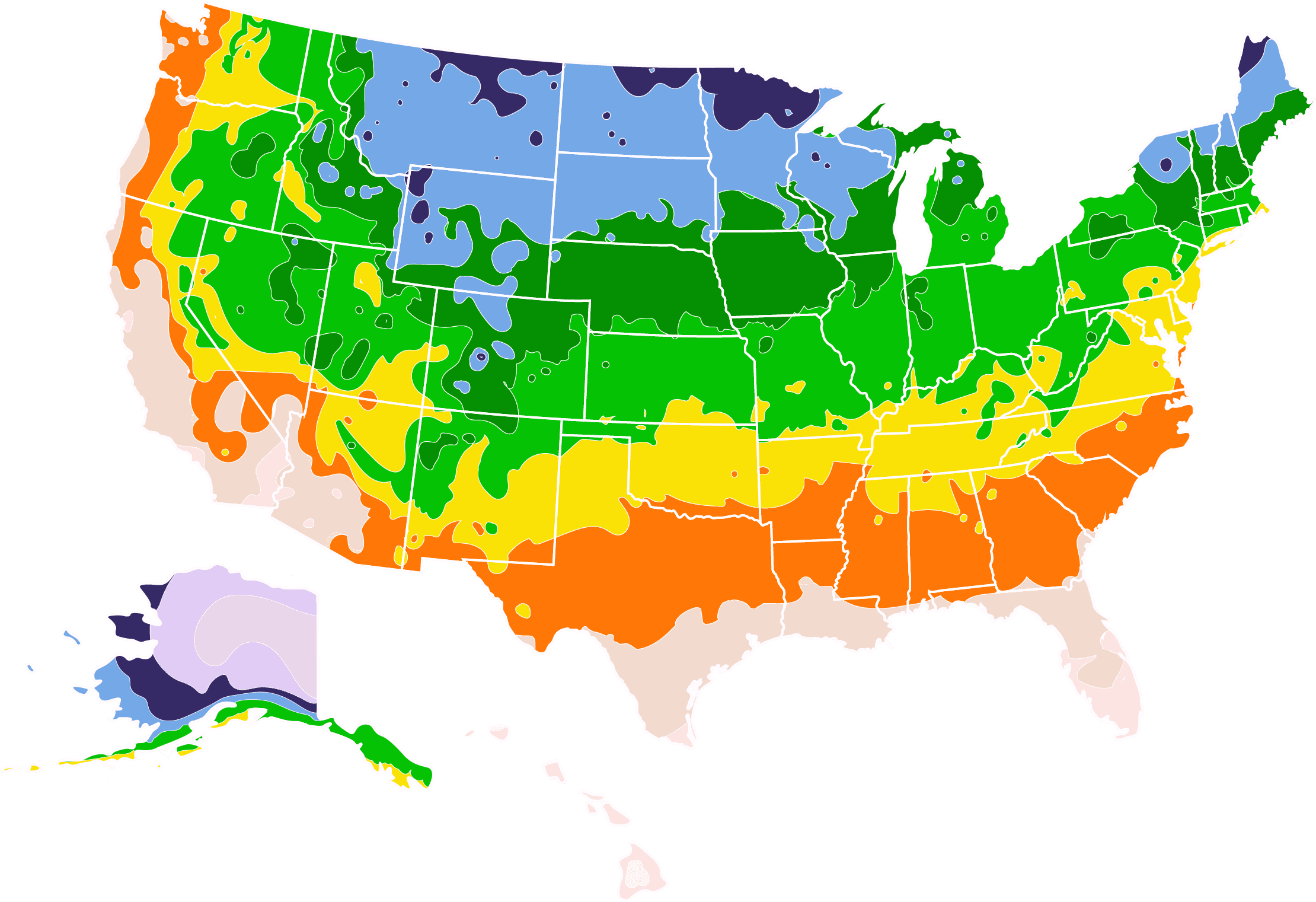- Home >
- Evergreen Trees >
- Superior Hybrid Poplar Tree
Superior Hybrid Poplar Tree for Sale
- Ships in 1-2 days
- 1-Year Warranty Eligible
- Pots or accessories are not included unless specified in the product options.
Shipping Details:
Once your order is shipped, you’ll receive an email with a tracking number and estimated delivery date. Most orders ship immediately, but some items are seasonal and may only ship in spring or fall. These products are noted on the website.
Superior hybrid poplar trees (Populus deltoides x Populus nigra) are valued by humans and wildlife alike. These fast-growing, low-maintenance trees are a cross between the poplar and cottonwood families. They are valuable in the landscaping and the lumber markets. Hybrid poplars also provide a perfect habitat and supply of food for many birds and animals. Other reasons to give superior hybrid poplar trees a try in your yard include:
- Superior hybrid poplars are one of the fastest-growing shade trees available.
- Hybrid poplars provide visual interest in the fall with vibrant yellow leaves.
- Poplar wood lumber is used for construction purposes, paper making, and as an all-purpose firewood.
Plant Care
Sunlight

Although poplars tolerate partial shade, they grow best in full sun, 6 or more hours of direct light a day.
Watering
Once established, a superior hybrid poplar tree needs about 1 inch of water a week.
Fertilizing

Apply a general purpose tree fertilizer after the first year, in the fall.
Planting instructions
Superior hybrid poplar trees thrive in temperate regions of the U.S. They prefer moist, well-draining soil. Planting your new tree in spring or fall gives it time to establish roots before harsh weather hits. Choose a spot that receives full sun or partial shade. Try to clear any debris, grass, or weeds from the area.
Dig a hole that is slightly deeper than the root ball and three times the width. After removing the tree from the container, gently loosen the roots out from the root ball. Place the tree down into the hole, add organic compost, and start backfilling. When the hole is half full, stop and fill it with water. After it has drained, continue backfilling the hole until finished. Water again deeply. To help conserve moisture, add a layer of mulch around the root zone, avoiding touching the trunk.
Note: For the ideal planting depth, the top of the root flare — where the trunk and roots meet — should be just above the grade.
Watering and nutrients
Even though poplar trees are low-maintenance, they do need water on a regular basis. They do best in wet areas such as those along rivers or streambeds. A good rule of thumb is to supply your Superior hybrid poplar with at least an inch of water every week. If you are experiencing a hot, dry period, you will need to water more frequently. Water it long and slowly to allow the water to sink deeply into the soil.
Poplar trees are very light feeders. It is not advisable to feed your Superior hybrid when you plant it or during the first year of growth. After that, apply fertilizer every year in the fall.
Pruning
Superior hybrid poplar trees require minimal pruning. They will grow naturally into a pleasing oval shape. If you do find it necessary to take out some branches, do it in late winter or early spring before new growth has appeared. Never remove more than 30% of a tree’s overall mass. Dead, diseased, or dying branches can be pruned anytime of year.
Pests, diseases, and animals
Superior hybrid poplar trees are known for their disease and pest-resistant qualities. However, several types of insects enjoy making poplar trees their home. Aphids, borers, caterpillars, mealybugs, and scales are all common pests. Vigilance, regular maintenance, and suitable insecticides can take care of infestations. Avoid pesticides if possible, as removing these insects completely impacts your local song bird population as well.
Fungal canker diseases are the primary concern for poplar trees. A canker can gird the limbs, causing branches to weaken, wilt, and die. Treat with a strong fungicide immediately to save infected branches and your tree.
Deer do enjoy snacking on poplar trees, especially when they are still saplings. Beavers, rabbits, rodents, and porcupines also enjoy the bark, leaves, and twigs. Protection is essential and simple while the trees are young. On the positive side, the trees provide essential habitat for many bird species.
FAQs
How long will it take my hybrid poplar to grow?
Typically, a superior hybrid poplar will add up to eight feet of growth in a year. It can reach its mature height of up to 60 feet within about six to seven years. This includes a canopy spread of up to 35 feet. They have a life expectancy of 30-50 years in optimal conditions.
Is poplar a good choice for firewood?
Because it is quick-lighting and fast-burning, poplar is an excellent choice for warming your home. It is also one of the most popular firewood picks for camping.
How should I plant my superior hybrid poplars for a privacy screen?
The recommended spacing for a regular planting of these trees is from 30 to 35 feet apart. For a privacy screen, you will want to plant them much closer. Ten feet apart is a good distance for a dense living screen. Within about three years, the fast-growing trees will soar to a solid screen about 25-30 feet high.
Are there other names for a superior hybrid poplar?
You may hear these trees called cottonless or seedless cottonwoods. This is because they do not produce the messy cottony seed that is a problem with other cottonwood trees.
What are other uses for hybrid poplars?
Superior hybrid poplars work as snow and windbreaks to help reduce many farms’ erosion. They are used in areas with both air and ground pollution as they act as a giant filter. The leaves attract odor-carrying particles and recycle them into clean air. Poplar roots absorb and filter nutrients before they can enter the groundwater or surface sources. Lumber, pulp, and other fiber-based items are made from this fast-growing tree.












